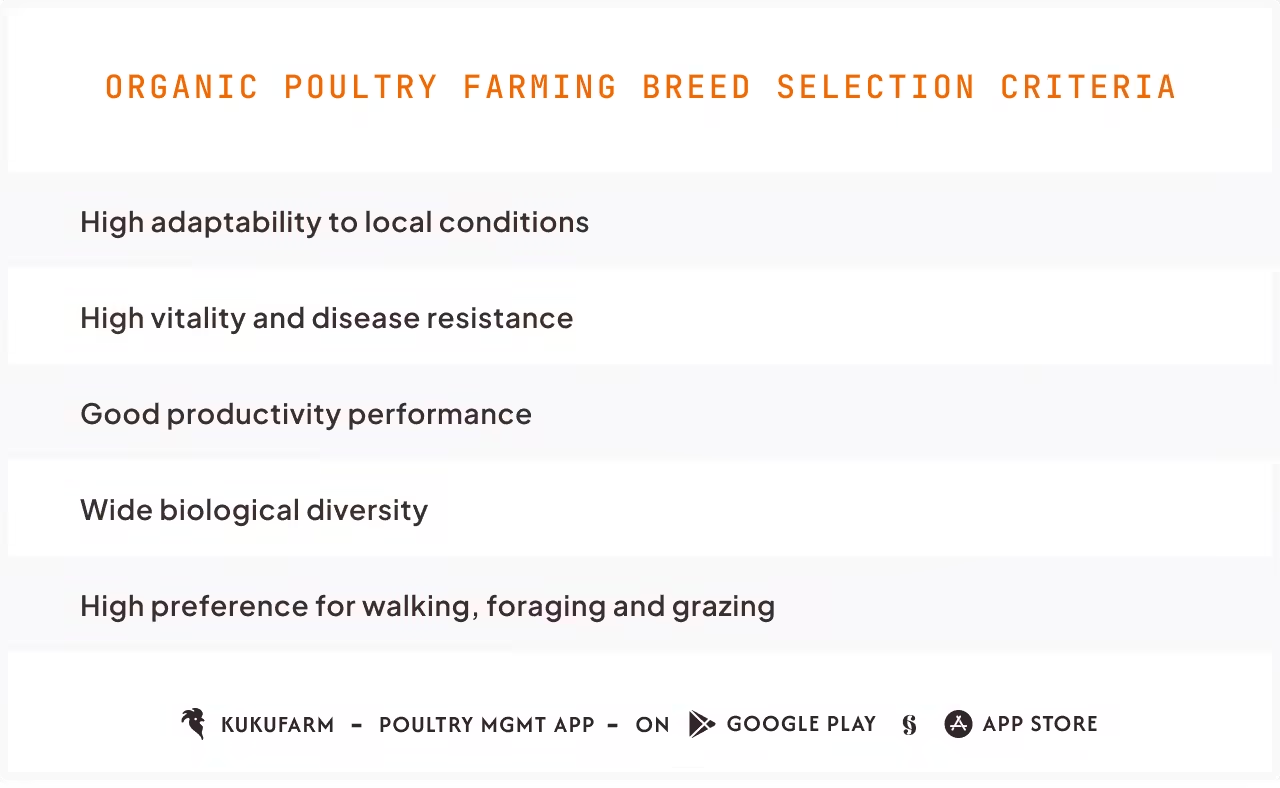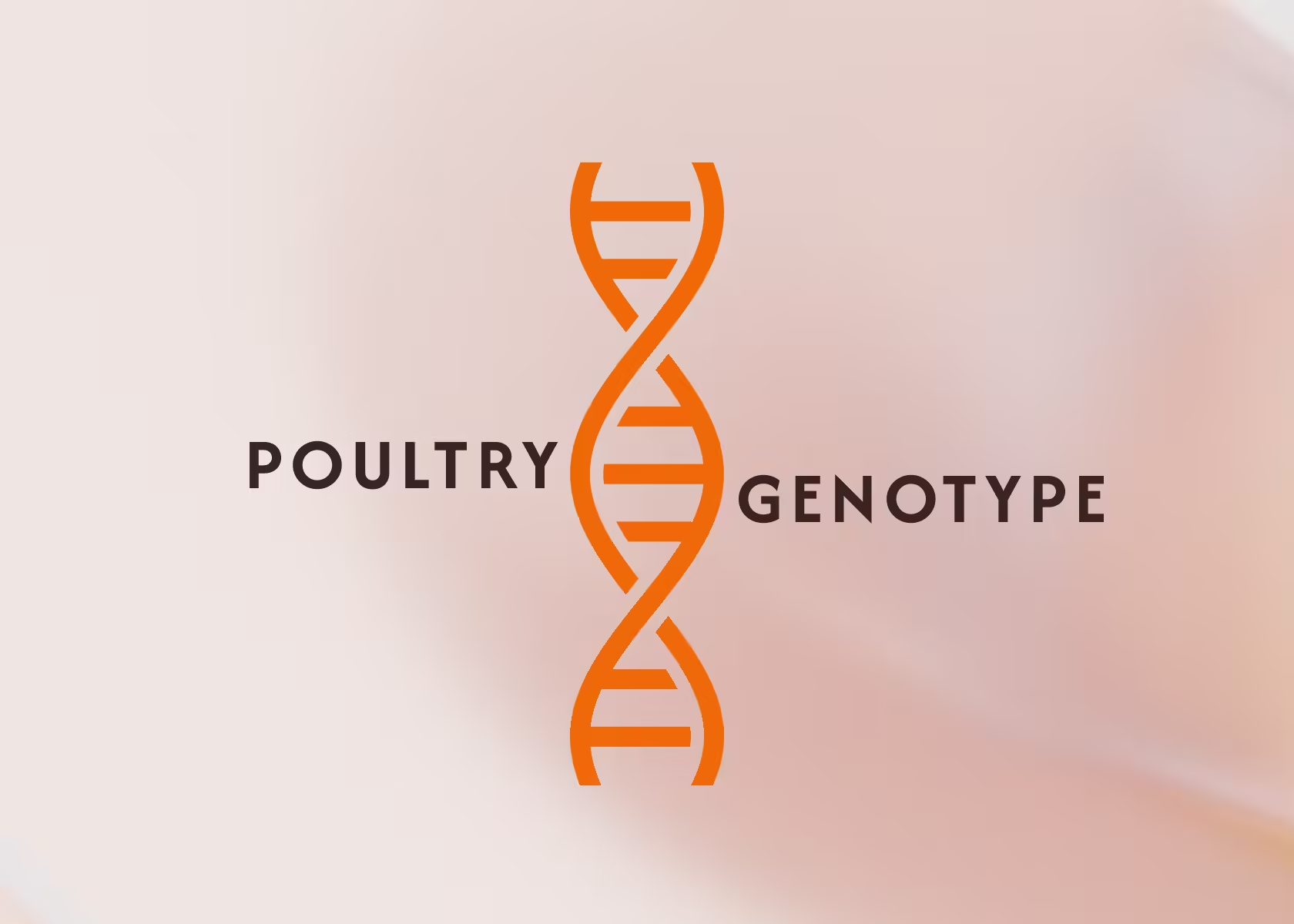Poultry genotype refers to the genetic makeup of poultry birds. Effectively, poultry genotype influences important traits like growth rate, egg production, disease resistance. Moreover this determines physical characteristics such as feather color and comb shape.
Poultry genotype refers to the genetic makeup of poultry birds:
- Growth rate
- Egg production cycle and rate
- Disease resistance
Therefore, understanding poultry genotype is essential for making informed breeding and flock management decisions. In this article, we will explore what poultry genotype is, how it impacts your farm, and why it is crucial for long-term success.
What is Poultry Genotype?
Poultry genotype is the combination of genes a bird inherits from its parents. These genes dictate traits such as growth, egg production, and disease resistance.
While the genotype determines the potential of these traits, the phenotype refers to the observable characteristics of the bird, such as its size, color, or egg-laying patterns.

In short, genotype provides the genetic foundation, whereas phenotype is the visible result of that genetic makeup, shaped by environmental factors like diet and care. For example, while the genotype influences a bird’s potential to grow quickly, the phenotype is how that growth appears based on how the bird is raised.
How Poultry Genotype Affects Breed Performance
Understanding poultry genotype is critical because it helps you make better decisions about breeding and flock management. By choosing birds with the right genetic traits, you can optimize various aspects of production, health, and farm sustainability. Below are key ways genotype directly affects your poultry farm:
1. Growth Rate and Feed Conversion
First, poultry genotype significantly impacts how efficiently a bird grows and converts feed into body mass. For example, broiler chickens are selectively bred for fast growth and high feed efficiency.

By selecting birds with these traits, you can reduce feed costs and speed up the time it takes for birds to reach market weight. As a result, your farm can see a boost in profitability. In fact, fast-growing birds reduce your overall cost per unit of meat production.
2. Egg Production
In addition to growth, genotype also plays a major role in egg production. Some breeds are genetically predisposed to lay more eggs, more consistently, and of higher quality.

Therefore, by selecting hens with a strong genetic background for egg-laying, you can increase your farm’s egg production and overall output. For instance, hybrid laying hens are bred for consistent egg production, making them a reliable choice for farms focused on high-volume egg production.
3. Disease Resistance
Moreover, genotype affects a bird’s ability to resist diseases. Birds with strong genetic immunity are more likely to withstand common poultry diseases. This leads to fewer veterinary costs and reduces the need for antibiotics or vaccines.

This is especially important for organic poultry farming, where minimizing the use of chemicals is a priority. By selecting birds with naturally high disease resistance, you can improve overall flock health and reduce costs associated with disease outbreaks.
4. Adaptability to Environment
Another important factor influenced by poultry genotype is a bird’s adaptability to its environment. Certain breeds are better suited to specific climates and conditions.
For instance, some genotypes are more resilient to cold weather, while others are more tolerant of heat and humidity. By choosing breeds that are adapted to your farm’s climate, you can help your birds thrive, reducing stress and health issues. This, in turn, leads to better performance and productivity.

The Role of Breeding in Poultry Genotype
Selective breeding plays an essential role in improving the poultry genotype of your flock. By carefully selecting parent birds with desirable traits, you pass those traits down to their offspring.
Over several generations, this practice can strengthen traits like growth rate, disease resistance, or egg production. For example, in commercial egg production, farmers often select hens with the best genetic traits for laying eggs efficiently. In broiler production, breeding focuses on improving feed conversion and muscle growth to produce birds that grow quickly and yield high-quality meat.

Therefore, selective breeding allows farmers to steadily improve the overall quality and productivity of their flocks.
How to Choose the Right Poultry Genotype for Your Farm
When selecting the right genotype for your poultry farm, there are several factors to consider.
Firstly, think about the purpose of production. Are you raising poultry for meat, eggs, or both? Broilers are bred for meat, while layers are bred for high egg production.
Secondly, consider your management practices. If you are farming organically, you’ll want breeds that are disease-resistant and capable of thriving in free-range environments.

Next, take your climate into account. Different breeds are suited to different climates. If you live in a cold region, choose breeds that can handle lower temperatures. Conversely, if your farm is located in a hot and humid area, select breeds that are heat-tolerant.
Finally, think about market preferences. What are your customers looking for? Are they interested in antibiotic-free, free-range, or heritage breeds? By understanding your market’s needs, you can choose the poultry genotype that aligns with those preferences.
Conclusion: Why Poultry Genotype Matters
In conclusion, poultry genotype is essential to the success of your farm. By selecting birds with the right genetic traits, you can optimize growth rates, egg production, disease resistance, and environmental adaptability.
Moreover, selective breeding helps improve these traits over time, ensuring a more productive and sustainable flock.

By understanding poultry genotype, you can make smarter breeding and management decisions. This leads to healthier birds and better farm profitability.
Whether you’re just starting your poultry operation or looking to optimize your existing flock, considering genotype is key. By choosing the best genetic traits for your farm, you’ll ensure long-term success and a thriving poultry business.
*
If you wanna get scientific, check out an introduction to poultry genetics by Dr. Jacob of University of Kentucky. You may also be interested in:

